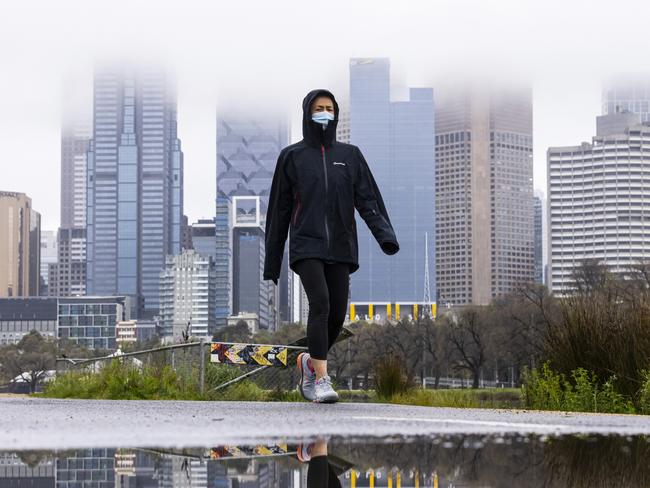Patrick Carlyon: After 263 days of lockdown, Victorians have willed their way to freedom
We niggled and nagged, drank too much, gained weight and the kids drove us mad. But here’s why every Melburnian should stop to reflect on surviving the world’s longest lockdown.
Patrick Carlyon
Don't miss out on the headlines from Patrick Carlyon. Followed categories will be added to My News.
Those of us who have written about the pandemic have reached for the same words, over and over, to describe the state of Melbourne and Victoria for the past 19 months.
Bleak has been used again and again.
Grim. Sad. Demoralised.
The more fanciful of us reached for German words, such as weltschmerz, when we ran out of English words.
Lockdown just kept going. And going.
We were tested in ways we had never anticipated.

If someone had said that you would be locked down for 263 days, that you couldn’t go to work and you couldn’t see your mum, you’d have reasoned that you were about to commit some unplanned crime and go to jail.
But you were no different to anyone else.
We all faced the deprivations.
And though some suffered far more than others, we were all subjected to the same uncertainty and trepidation and inability to plan.
Victoria is a world leader in so many endeavours.
To sport, the arts and major events, we can now add world’s longest social experiment in anthropological resilience.
There were so many everyday reasons to be down.
The kids drove us mad, as did the dogs.

We niggled and nagged. Little things became big.
We drank too much, for something to do, and put on weight and dallied with exercise regimens, which sometimes lasted weeks.
We all sagged, one way or another.
How could we not?
Yet, here we are.
Scarred, in many cases, but undefeated.
We collectively held our nerve.
We stayed patient long after the usual coping mechanisms were exhausted.
And we did the right thing.
In those chilly months, we queued up outside vaccine hubs so that our vaccination rate — with first doses at 90 per cent — will soon be higher than almost any foreign jurisdiction.

It was a tangled path, of those who could get vaccinated who hesitated, and those who could not, itching for months to qualify.
But we willed our way to freedom. We hung in.
We changed our vision of thinking to months and years rather than days and weeks.
And we got there.
For comparison, think back to the recession of the late ’80s, when university graduates packed shelves in supermarkets, and affluent small business people took jobs cleaning schools – and felt grateful.

Afterwards, few Victorians wanted to ponder the unexpected difficulties, the frustrations, and the gnawing fear of whether they could endure.
Happily, we have reached that same crossroads, when the prospects ahead are so much better than the recent memories.
There’s only one way this happened.
Many of us tuned in to the daily press conference, which featured “shout-outs” to those in the most trying of circumstances.
This is a shout-out to every Victorian.
There may be loftier words, but the message is simple: we did good.




